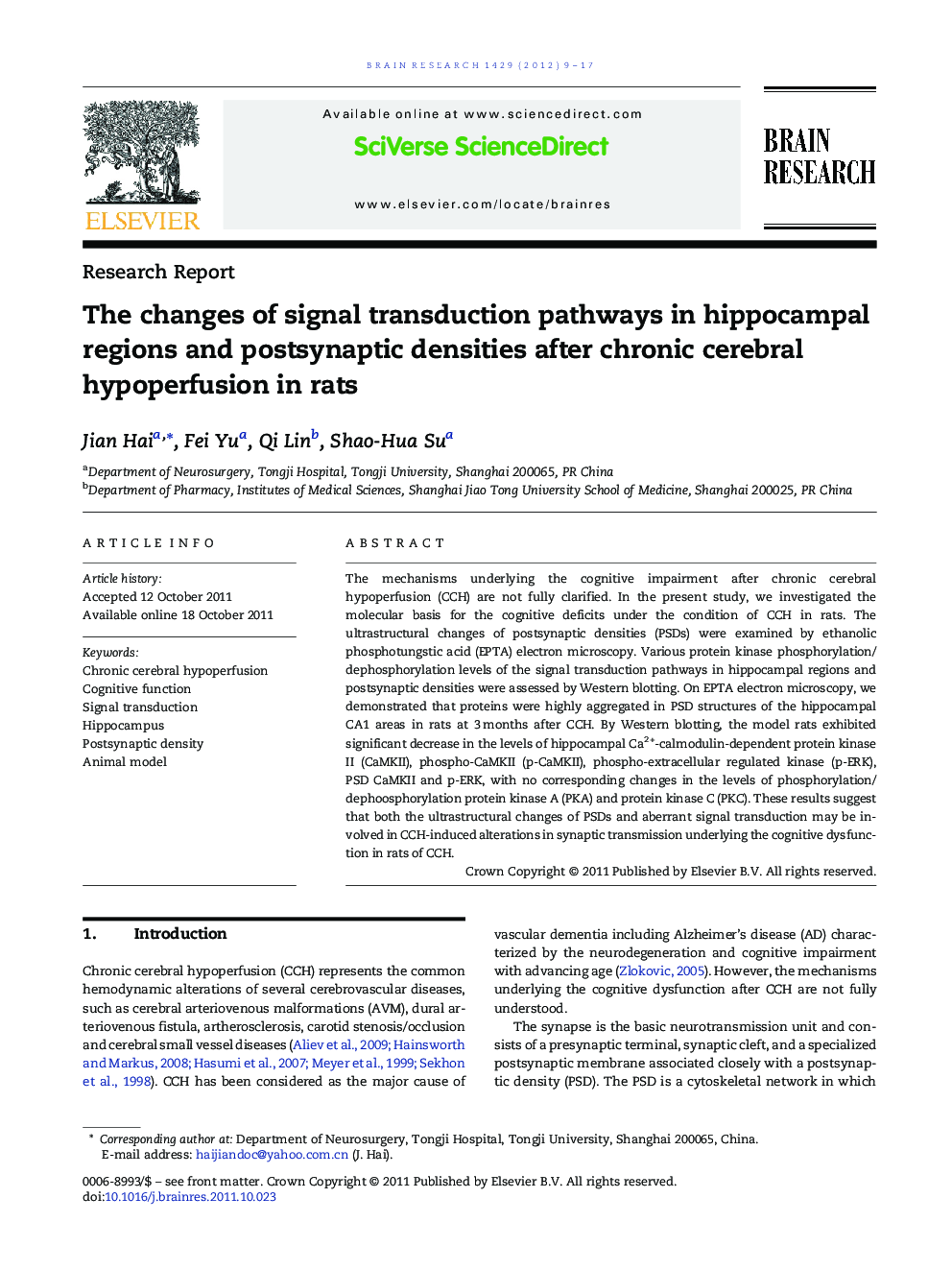| Article ID | Journal | Published Year | Pages | File Type |
|---|---|---|---|---|
| 6264647 | Brain Research | 2012 | 9 Pages |
The mechanisms underlying the cognitive impairment after chronic cerebral hypoperfusion (CCH) are not fully clarified. In the present study, we investigated the molecular basis for the cognitive deficits under the condition of CCH in rats. The ultrastructural changes of postsynaptic densities (PSDs) were examined by ethanolic phosphotungstic acid (EPTA) electron microscopy. Various protein kinase phosphorylation/dephosphorylation levels of the signal transduction pathways in hippocampal regions and postsynaptic densities were assessed by Western blotting. On EPTA electron microscopy, we demonstrated that proteins were highly aggregated in PSD structures of the hippocampal CA1 areas in rats at 3Â months after CCH. By Western blotting, the model rats exhibited significant decrease in the levels of hippocampal Ca2Â +-calmodulin-dependent protein kinase II (CaMKII), phospho-CaMKII (p-CaMKII), phospho-extracellular regulated kinase (p-ERK), PSD CaMKII and p-ERK, with no corresponding changes in the levels of phosphorylation/dephoosphorylation protein kinase A (PKA) and protein kinase C (PKC). These results suggest that both the ultrastructural changes of PSDs and aberrant signal transduction may be involved in CCH-induced alterations in synaptic transmission underlying the cognitive dysfunction in rats of CCH.
⺠Chronic cerebral hypoperfusion leads to cognitive impairment. ⺠The molecular mechanisms underlies the cognitive impairment. ⺠The ultrastructural changes of postsynaptic densities and signal transduction pathways in rat hippocampal regions. ⺠The changes of postsynaptic densities and signal transduction in rat hippocampal areas contribute to cognitive dysfunction.
